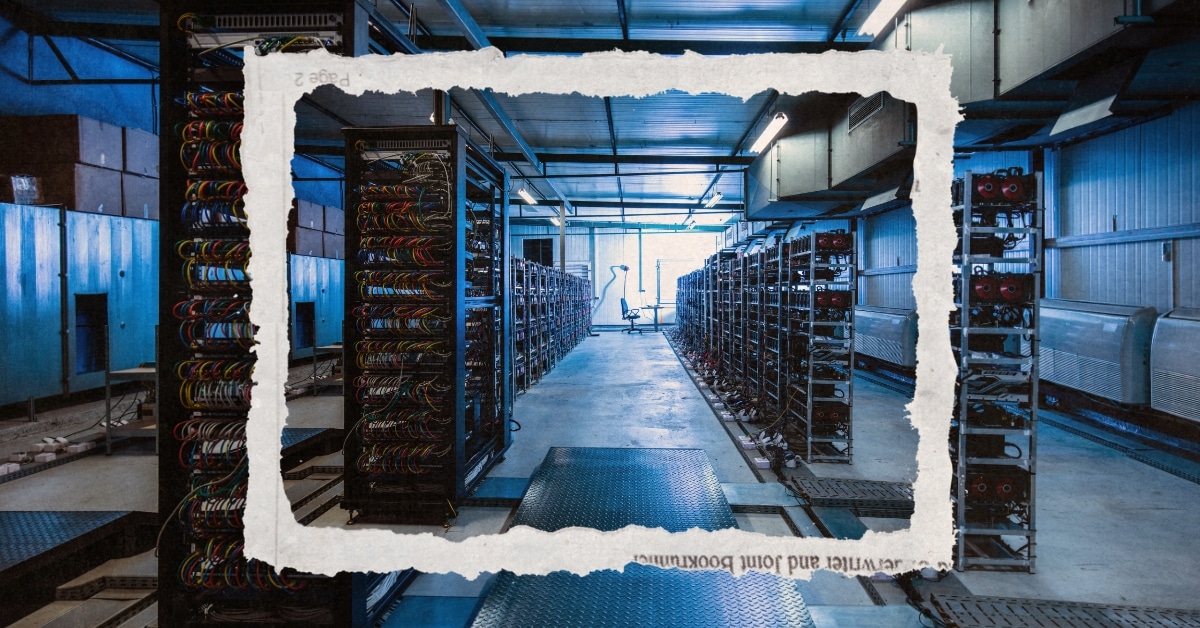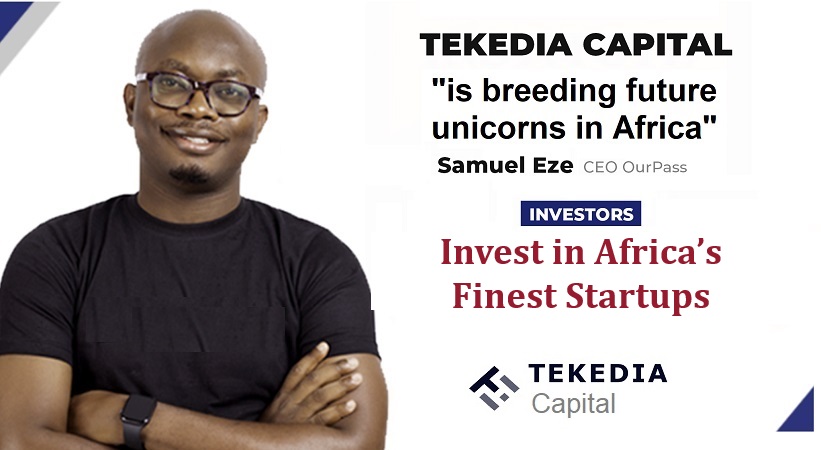News
11 Best Crypto Wallets of June 2024

Cryptocurrency wallets come in many forms, but at their core all crypto wallets provide a way to protect secret information that gives you control over your digital assets. This is not something you want to leave to chance; if you lose access to these “private keys,” you may never get your cryptocurrency back.
What are non-custodial crypto wallets?
Non-custodial crypto wallets are the type of storage option preferred by many crypto enthusiasts because they place you in control of your own private data. Unlike when you keep assets on a cryptocurrency exchange, with a non-custodial wallet, you don’t have to trust a third party to secure your private keys. The collapse of crypto platforms FTX and BlockFi in 2022, which left customers wondering if their funds were lost forever, shows some of the potential pitfalls of leaving your crypto in someone else’s hands.
That’s not to say non-custodial wallets are without risk. They are less forgiving of errors such as lost passwords, and you have to trust that your wallet’s hardware and software will work as intended.
And moving assets between wallets regularly can become costly because of transaction fees imposed by underlying blockchain networks. For these reasons some crypto users have multiple types of wallets: some for long-term safekeeping and others for active trading.
One way to choose a wallet is by looking at the website of the cryptocurrency you’re hoping to store. There are many single-purpose solutions built for individual cryptocurrencies. For example, MetaMask is often considered a top Ethereum wallet because it focuses solely on ERC-20 tokens. Similarly, Electrum is among the top Bitcoin wallets because it’s built specifically for Bitcoin power users.
But if you’re planning to protect multiple kinds of cryptocurrencies in one place, it’s a good idea to shop around. Here’s how to know what’s right for you.
How to choose the best crypto wallet
If you’re going to use a non-custodial wallet, the first question is whether you want a hot wallet or a cold wallet. These terms may sound unfamiliar, but the main difference between a hot wallet and a cold wallet is whether it is connected to the internet.
-
A hot wallet is on a device that is connected to the internet. These are often free to use, offering add-on services such as trading or staking in exchange for fees. A hot wallet makes it relatively easy to carry out transactions using crypto, but it may be more vulnerable to hackers who could theoretically reach your crypto over the internet.
-
A cold wallet is on a device that is disconnected from the Internet. These tend to cost money, because you have to buy a piece of actual hardware that’s set up to store your crypto. Because they are not connected to the internet, they may be harder for other users to reach. But if you lose the actual device, recovery could be very difficult.
8 best hot wallets
There is a large selection of hot wallets on the market, and most of them can support hundreds or even thousands of cryptocurrencies. They also generally can hold at least some types of NFTs, or non-fungible tokens, and many connect directly to exchanges where you can buy or sell crypto.
The key differences between crypto wallets are:
-
How many types of digital assets are supported?
-
How easy is it to move crypto offline, into a cold wallet?
-
Are there resources for in-app staking or rewards programs?
Crypto.com DeFi Wallet: 4.8 out of 5 stars
Crypto.com DeFi Wallet is a wallet created by a company mostly known for its crypto exchanges. It’s specifically tailored for use in what is known as decentralized finance (DeFi), which is a sector of the crypto world focused on lending, saving and other financial products that don’t rely on a central broker. Users of Crypto.com DeFi Wallet can use their crypto holdings to interact with DeFi products both on their mobile app and in a browser extension. It also has a desktop app that integrates with Ledger hardware wallets.
-
Assets supported: More than 1,000.
-
Can convert to cold storage: Yes, on desktop.
-
Staking/DeFi support: Yes.
Zengo Wallet: 4.8 out of 5 stars
Zengo has emerged as a next-generation wallet that claims to build on the technology of previous wallets. Rather than seed phrases and private keys, Zengo uses a form of cryptography known as multi-party computation, or MPC, to secure assets and perform transactions. Zengo claims this is the first instance of a consumer wallet (as opposed to an institution) using MPC. Seed phrases and private keys have been at the heart of self-custody in crypto since the beginning, but Zengo aims to enhance security while doing away with the issues that come from managing your own keys and seed phrases. The company says that as of 2024, no Zengo wallets have been phished, hacked or otherwise taken over.
The biggest downside to Zengo is that it does not offer a downloadable desktop version, and currently, it lacks support for some very popular cryptocurrencies, including Solana, XRP, Cardano and Polkadot [0].
Can convert to cold storage: Yes, via WalletConnect.
Staking/DeFi support: Yes.
Guarda: 4.6 out of 5 stars
Guarda is a free, all-purpose crypto wallet whose users can access their crypto via mobile, desktop or browser extension. It says it supports more than 400,000 digital assets. Users of Guarda can move crypto into cold storage through an integration with the hardware wallet Ledger. Guarda also has staking programs available.
-
Assets supported: More than 400,000.
-
Can convert to cold storage: Yes.
-
Staking/DeFi support: Yes.
Exodus: 4.5 out of 5 stars
Exodus offers a solid set of software tools, including a mobile app, a desktop app and a browser extension. Its products allow users to buy, trade or stake cryptocurrency directly from their wallets, and it has an integration with the Trezor cold wallet intended to help people easily move crypto from hot to cold storage. Exodus, which is free to use, also has a solid library of explanatory content for people who are learning about crypto.
-
Assets supported: Around 300.
-
Can convert to cold storage: Yes.
-
Staking/DeFi support: Yes.
Coinbase Wallet: 4.4 out of 5 stars
You’ve heard of Coinbase. The company operates the largest U.S.-based crypto exchange. But Coinbase Wallet is a separate product that allows users to store cryptocurrency themselves rather than keeping it in the custody of Coinbase. Because the Coinbase Wallet was created by Coinbase, it integrates easily with its company’s exchange and may be a good introduction for users who haven’t used a non-custodial wallet before.
The free application has some other strengths, such as mobile and browser-based connections to decentralized applications. It also lacks some functionality offered by competitors, such as a desktop app, though its browser extension connects to the Ledger hardware wallet.
-
Assets supported: Thousands.
-
Can convert to cold storage: Yes.
-
Staking/DeFi support: Yes.
Trust Wallet: 4.3 out of 5 stars
Trust Wallet is another storage product that operates in partnership with a major crypto exchange. It is the official wallet of Binance, the international digital asset firm, and that partnership gives users the ability to buy, sell and trade directly from their wallet. It says it supports more than 10 million types of digital assets, though this should probably be taken with a grain of salt, as CoinMarketCap only puts the number of circulating cryptocurrencies at about 2.4 million[0]. Trust Wallet also does not provide a full list of supported cryptocurrencies on its website. However, it is fully open-source — a distinction that only a handful of competitors share — and by supporting more than 100 blockchains, it’s likely the wallet will be able to support just about any cryptocurrency you come across.
-
Assets supported: More than 10 million digital assets and over 100 blockchains.
-
Can convert to cold storage: Yes, to Ledger via browser extension.
-
Staking/DeFi support: Yes.
MetaMask: 4.0 out of 5 stars
If you’re a regular user of applications on the Ethereum blockchain, chances are you’ve come across MetaMask. Free and open-source, MetaMask can store any digital asset that’s built on Ethereum. MetaMask also integrates with many of the “Web3” applications that exist on the Internet and require crypto transactions to work.
MetaMask has mobile and browser-based wallets, though it does not have a desktop app. It also offers staking and DeFi apps through its MetaMask Portfolio feature. Just remember that if you’re not a big user of Ethereum and its related tokens, MetaMask might not be much help to you.
-
Assets supported: More than 650,000, with the option to manually add unsupported ERC-20 assets.
-
Can convert to cold storage: Yes.
-
Staking/DeFi support: Yes.
Electrum: 2.5 out of 5 stars
Electrum is an outlier among wallets reviewed by NerdWallet, in that it only works with one cryptocurrency. That cryptocurrency, however, is Bitcoin — far and away the most valuable cryptocurrency on the market. What Electrum lacks in altcoin offerings, however, it makes up for in security and transparency. This free, open-source product offers two-factor authentication, straightforward connections to cold storage, and support for multisignature transactions (which require the signoff of multiple users). Electrum only offers a desktop app and a mobile app for Android, but the tools it offers to Bitcoin enthusiasts make it a standout. And it’s a reminder that if you’re only looking to store one cryptocurrency, it can be a good idea to refer to its official website for recommendations.
-
Assets supported: One (Bitcoin).
-
Can convert to cold storage: Yes.
-
Staking/DeFi support: No.
Advertisement
| NerdWallet rating
NerdWallet’s ratings are determined by our editorial team. The scoring formula for online brokers and robo-advisors takes into account over 15 factors, including account fees and minimums, investment choices, customer support and mobile app capabilities. 4.9 /5 |
NerdWallet rating
NerdWallet’s ratings are determined by our editorial team. The scoring formula for online brokers and robo-advisors takes into account over 15 factors, including account fees and minimums, investment choices, customer support and mobile app capabilities. 4.3 /5 |
NerdWallet rating
NerdWallet’s ratings are determined by our editorial team. The scoring formula for online brokers and robo-advisors takes into account over 15 factors, including account fees and minimums, investment choices, customer support and mobile app capabilities. 5.0 /5 |
|
Fees $0 per online equity trade |
||
|
Promotion None no promotion available at this time |
Promotion 1 Free Stock after linking your bank account (stock value range $5.00-$200) |
Promotion None no promotion available at this time |
3 best cold wallets
Cold wallets are usually gadgets that help you store sensitive crypto information on a device that isn’t routinely connected to the internet.
While there are ways to do this yourself, hardware wallets come preloaded with software and other usability and security features that make the process smoother.
Cold wallets cost more than hot wallets, in part because you’re buying an actual, physical product. When you’re comparing crypto wallets, you may want to consider details such as price and security measures. If you also use a hot wallet, you should check to make sure the hardware you’re considering will work with your software wallet.
Here are some of NerdWallet’s top picks for cold crypto wallets.
Ledger: 5.0 out of 5 stars
Ledger is one of the best-known names in crypto wallets. Its prices range from around $79 to $149, and Ledger can integrate with many popular software wallets such as Crypto.com and Guarda. Ledger has a highly rated mobile app, plus a dedicated desktop app, and its developers are in the process of rolling out a browser extension. Ledger also has two-factor authentication available, and a library of educational content for users.
-
Assets supported: More than 5,500.
-
Can convert to online storage: Yes.
-
Staking/DeFi support: Yes.
Trezor: 4 out of 5 stars
Trezor offers some of the highest-end hardware available in crypto storage. While its entry-level model (the Tezor Model One) costs around $60, it also has a more expensive model (price at publication was $179) with a touch screen. Trezor has integrations with other crypto firms such as Exodus, though it also provides built-in services such as staking and crypto purchases through its software products. It has a desktop offering, as well as a mobile app (Trezor Suite Lite) for Apple and Android.
-
Assets supported: More than 9,000.
-
Can convert to online storage: Yes.
-
Staking/DeFi support: Yes.
SafePal: 3.8 out of 5 stars
SafePal is something of a hybrid wallet, with both offline and online elements. It stores your crypto on a hardware device, which starts at a relatively affordable $50. You can then use that device to interact with SafePal’s software products such as a mobile application and browser extension that facilitate services like buying, selling and trading. It says it lets users explore more than 100 million digital assets[0], although in our analysis of the specific cryptocurrencies listed on its website, we counted about 45,000. Still, this is the most among hardware wallets reviewed by NerdWallet. SafePal does not, however, have a dedicated desktop app.
-
Assets supported: More than 100 million types of digital assets, with 45,000 specific cryptocurrencies listed on its website.
-
Can convert to online storage: Yes.
-
Staking/DeFi support: Yes.
Track your finances all in one place
Get started by signing up and linking an account.
Best crypto wallets by category
For hot wallets: Crypto.com DeFi Wallet and Zengo Wallet
Crypto.com and Zengo are tied for the title of highest-rated hot wallet, owing to DeFi Wallet’s support for a wide variety of coins, and Zengo Wallet’s advanced security protocols and spotless security track record.
However, each of these wallets’ strengths is the other’s liability. DeFi Wallet lacks many common security features, including two-factor authentication, while Zengo lacks support for several popular coins such as Solana and XRP.
For cold wallets: Ledger
Ledger takes the highest marks in the cold wallet category thanks to its affordable price, popular mobile app and educational resources, security features, and integrations with popular crypto software.
Methodology
How do we review cryptocurrency wallets?
NerdWallet’s comprehensive review process evaluates and ranks products that allow U.S. customers to store, send and receive cryptocurrency. Our aim is to provide our independent assessment of providers to help arm you with information to make sound, informed judgements on which ones will best meet your needs. We adhere to strict guidelines for editorial integrity.
We conduct first-hand testing and observation, and the results fuel our proprietary assessment process that scores each provider’s performance across more than 15 factors. The final output produces star ratings from poor (one star) to excellent (five stars). For more details about the categories considered when rating wallets and our process, read our full methodology.
Frequently asked questions
Can I move crypto from a traditional online broker to a crypto wallet?
Once you’ve set up a crypto wallet, you can buy crypto to put in it via crypto exchanges, certain traditional brokers, certain money transfer services, Bitcoin ATMs and more. Our article on how to buy Bitcoin gives a good overview of the current options for buying crypto.
Can I move crypto from a traditional online broker to a crypto wallet?
How do I buy crypto?
Once you’ve set up a crypto wallet, you can buy crypto to put in it via crypto exchanges, certain traditional brokers, certain money transfer services, Bitcoin ATMs and more. Our article on
how to buy Bitcoin
gives a good overview of the current options for buying crypto.
News
US Cryptocurrency Rules Delayed by ‘Never-Ending’ Lawsuits

Ripple CEO says cryptocurrency industry still seeking regulatory clarity from US
Speaking to Bloomberg News on Wednesday (July 17), Author: Brad Garlinghouse he said America is behind behind other countries which have already adopted cryptocurrency regulations.
“What we’re seeing, where it’s the UK, Japan, Singapore… even the European Union, more than two dozen countries have come together to provide a framework for cryptocurrency regulation,” Garlinghouse said.
“It’s frustrating that we as a country can’t get that regulatory framework in place. And instead, we have this never-ending lawsuit coming from the SEC that doesn’t really address the problem.”
Ripple has been the target of some of these legal disputes. Securities and Exchange Commission (SEC) sued the company in 2020, accusing it of conducting a $1.3 billion operation offering of unregistered securities tied to its XRP token.
However, last year a judge ruled that only Ripple’s institutional sales of XRP, not retail sales, violated the law, a decision widely seen as a victory for the cryptocurrency industry.
As PYMNTS noted at the time, that ruling has “far-reaching repercussions impact across the digital asset ecosystem, which has long maintained that its tokens do not represent securities contracts.”
However, Garlinghouse told Bloomberg on Wednesday that the company cannot wage multimillion-dollar legal battles over each token.
He spoke to the news agency from the Republican National Convention in Milwaukee, where the party is backing the candidacies of former President Donald Trump and Ohio Sen. J.D. Vance, both of whom are considered pro-cryptocurrency.
But Garlinghouse argued that cryptocurrencies “should not be a partisan issue,” and noted that he had recently attended a conference in Washington that included Democrats, including White House officials.
“I think they were there, listening to the industry… it was refreshing to start having that conversation,” she said.
President Joe Biden earlier this year he vetoed a measure which would have ended the SEC’s special rules for crypto-asset custodians. This legislation was supported by both the digital asset industry and the banking industry.
Ripple early this year donated $25 million to the cryptocurrency industry’s super PAC Fair Smoothiewith Garlinghouse stating at the time that such donations would continue every year, as long as the industry had its detractors.
Second Open SecretsWhich monitor spending For campaigns, the PAC has spent $13.4 million this year, much of it to help defeat Rep. Katie Porter’s (D-Calif.) U.S. Senate campaign.
News
The Future of Cybersecurity in the Cryptocurrency Industry

The cryptocurrency space has had a tumultuous journey, with its fair share of ups and downs. As we look to the future, one area that remains a constant focus is cybersecurity. The digital nature of cryptocurrencies makes them inherently vulnerable to cyber threats, and as the industry evolves, so does the landscape of potential risks.
In 2022, the cryptocurrency market faced significant challenges, with over $2 trillion in market value lost. This event served as a wake-up call for the industry, highlighting the need for robust cybersecurity measures. The future of cryptocurrency security is expected to see a shift towards more regulated and established institutions taking the reins of crypto technology and blockchain infrastructure.
The decentralized nature of cryptocurrencies offers numerous benefits, such as transparency and financial inclusion. However, it also introduces unique security challenges. The risk landscape is filled with threats such as hacking, phishing, ransomware attacks, malware, and social engineering. These threats not only lead to financial losses, but also damage the reputation and trust within the cryptocurrency ecosystem.
Mini-MBA Tekedia edition 15 ((September 9 – December 7, 2024) started recordings; Register today for discounts reserved for early bird customers.
Tekedia AI in Business Masterclass Opens registrations Here.
Join the Tekedia Capital Syndicate and IInvest in Africa’s best startups Here.
The decentralized nature of cryptocurrencies offers many benefits, but it also presents unique security challenges. Cyber risks such as hacking, phishing, and ransomware pose threats to the integrity of digital assets. The infrastructure that supports cryptocurrencies is not immune to vulnerabilities, including smart contract flaws and exchange hacks.
To address these vulnerabilities, the infrastructure that supports cryptocurrencies must be strengthened. Smart contract vulnerabilities, exchange hacks, wallet breaches, and flaws in the underlying blockchain technology are significant concerns that must be addressed to ensure the security and integrity of digital assets.
As cybercriminal tactics and techniques become more sophisticated, the cryptocurrency industry must stay ahead of the curve. The future will likely see more targeted attacks, exploiting weaknesses in infrastructure, networks, and human factors. This requires a proactive and multifaceted approach to cybersecurity.
To mitigate these risks, several measures must be adopted:
Strengthening security measures: Developers, exchanges, and wallet providers must improve security protocols, use strong encryption, implement multi-factor authentication, and conduct regular security audits.
Education and awareness: Users should be educated on best practices for protecting their digital assets, including using strong passwords, recognizing phishing attempts, and using hardware wallets for secure storage.
Looking ahead, the cryptocurrency industry is expected to see an increased focus on robust security measures. Blockchain projects and exchanges are likely to invest in advanced encryption techniques and decentralized storage solutions to protect user assets. The future impact of cyber risk on cryptocurrencies will depend on the collective efforts of stakeholders to address vulnerabilities and strengthen security measures.
Collective efforts by stakeholders in the cryptocurrency space are crucial to address vulnerabilities and strengthen security measures. While challenges persist, advances in cybersecurity technologies and practices offer hope for a more secure and resilient cryptocurrency ecosystem.
The future of cybersecurity in the cryptocurrency industry depends on finding a balance between innovation and regulation. It requires a collaborative effort from all parties involved, from developers to end users, to create a secure environment that fosters trust and growth in the industry. As we move forward, it is critical that lessons learned from past events guide the development of stronger security measures, ensuring the longevity and stability of cryptocurrencies as a vital part of the modern economic toolkit.
Like this:
Like Loading…
News
Bullish XRP and RLBK price predictions rise, outpacing the broader cryptocurrency market, prompting Shiba Inu holders to switch!

Bitcoin’s one-week surge from $60,000 has pushed other cryptocurrencies into an uptrend. However, for many altcoins, this trend has been temporary. Altcoins such as XRP and Shiba Inu (SHIB) have experienced price drops. However, Rollblock, a new altcoin on the Ethereum blockchain, has thrived during this period, attracting thousands of investors looking for long-term growth.
XRP’s Nearly 30% Growth Over Last Week Drops as Selling Pressure Increases
XRP is seeing further price decline as Ripple investors withdraw their profits from the token. The surge in XRP’s price to $0.64 in the past week has provided investors with a perfect opportunity to increase their returns in the short term. With the ongoing sell-off in XRP, XRP has jumped over 8% in the past day and is now trading at $0.59. However, analysts tracking XRP indicators predict that XRP could still extend its gains by over 30% in the coming weeks.
Shiba Inu (SHIB) marks its third consecutive day of losses
Shiba Inu (SHIB) is in a period of adjustment after a week of strong gains. In the last 24 hours, SHIB has seen a jump of over 7%, reflecting a natural market fluctuation. Analysts are observing a death cross on the Shiba Inu chart, which historically signals the potential for future opportunities as the market stabilizes. As investors explore new possibilities, some are diversifying into promising altcoins like Rollblock (RBLK) to strategically rebalance their portfolios and capitalize on the emerging trend.
Rollblock (RBLK) Up Another 7% as New Investors Join Pre-Sale
Rollblock (RBLK) has taken the cryptocurrency market by storm, having attracted investors from more popular altcoins like Shiba Inu (SHIB) and XRP. Rollblock’s growth is attributed to its utility in the $450 billion global gaming industry.
Rollblock aims to use blockchain technology to bridge the gap between centralized and decentralized gambling. With blockchain technology, Rollblock secures every transaction in its online casino, providing transparency and convenience to millions of players who are uncomfortable placing bets on other iGaming platforms.
This innovative use of blockchain technology in the industry has grown Rollblock to over 4,000 new users in less than two months. With plans to add sports betting, this number is expected to grow exponentially in Q3.
Rollblock uses a revenue sharing model that splits up to 30% of its casino’s weekly profits with token holders. This happens after Rollblock buys back $RBLK from the open market and uses half of it for rewards. The other half is burned to increase the price of $RBLK.
Rollblock price has seen four increases in the past month with $RBLK tokens now selling for $0.017. Analysts predict that at the current growth rate, Rollblock could increase by over 800% before the presale ends. For investors looking for a long-term token with growth potential, phase four is the best time to buy Rollblock before its price skyrockets!
Discover the exciting Rollblock (RBLK) pre-sale opportunities now!
Website:https://Rollblockpresale.io/
Social: https://linktr.ee/Rollblockcasino
No spam, no lies, just insights. You can unsubscribe at any time.
News
Texas Crypto Miners Turn to AI as Crypto Declines

As cryptocurrency mining becomes less profitable, Texas cryptocurrency mining companies are switching to supporting artificial intelligence companies.
Bitcoin miners, with their sprawling data centers and access to significant energy resources, are ideally suited for computationally intensive AI operations, and as cryptocurrency mining becomes less profitable, companies see this shift as a logical answer to their problems.
On Thursday, Houston-based Lancium and Denver-based Crusoe Energy Systems announced a multibillion-dollar deal to build a 200-megawatt data center near the West Texas city of Abilene to support advanced artificial intelligence applications such as medical research and aircraft design, CNBC reported. The plant represents the first phase of a larger 1.2 gigawatt project.
Lancium and Crusoe’s move into AI mirrors a broader trend among bitcoin miners. The combined market capitalization of the top U.S.-listed bitcoin miners hit a record $22.8 billion in June. Companies like Bit Digital and Hut 8 are diversifying into AI, with Bit Digital securing a $92 million annual revenue deal to supply Nvidia GPUs and Hut 8 raising $150 million to expand its AI data center.
But the growing popularity of these operations also presents challenges, particularly for the Texas power grid. Last month, the Electric Reliability Council of Texas announced that the state is expected to nearly double its energy production by 2030 to meet the high energy demands of data centers and cryptocurrency operations.
Lieutenant Governor Dan Patrick expressed concern about the projections.
“Cryptocurrency miners and data centers will account for more than 50% of the additional growth. We need to take a close look at these two sectors,” He wrote on Twitter/X. “They produce very few jobs compared to the incredible demands they place on our network. Cryptocurrency miners could actually make more money selling electricity to the network than they do from their cryptocurrency mining operations.”
Analysts predict significant growth in data center power capacity, which is expected to account for up to 9% of U.S. electricity consumption by 2030.
The operations also pose challenges for nearby cities. Earlier this month, TIME reported that a crypto-mining facility was seriously compromising the health of residents in the city of Granbury. TIME reported more than 40 people with serious health problems, including cardiovascular disease, high blood pressure and hearing loss. At least 10 of the residents needed to go to the emergency room or an urgent care facility.
The disturbances were caused by the extreme noise generated by the crypto-mining facility’s fans, which are used to keep the machines cool. While the proposed data center in Abilene would use liquid cooling systems, it’s still unclear whether the facility’s operations would pose a health risk to local residents.
-

 Nfts1 year ago
Nfts1 year agoShardLab Launches ZK-Based Tool for Digital Identity and NFT Vouchers
-

 News1 year ago
News1 year agoWallet recovery firms are abuzz as stranded cryptocurrency investors panic in the bitcoin boom
-

 Bitcoin1 year ago
Bitcoin1 year agoBitcoin, Ethereum, Solana and Cryptocurrency Markets Look Ready to ‘Send’ as Stars Align, According to Investor Chris Burniske
-

 Altcoins12 months ago
Altcoins12 months agoThree Altcoins Poised for Significant Growth in 2024: ETFS, OP, BLAST
-

 Altcoins12 months ago
Altcoins12 months agoAccumulate these altcoins now for maximum gains
-

 Nfts1 year ago
Nfts1 year agoOG Crypto Artist Trevor Jones Unveils Groundbreaking Collection of Ordinals | NFT CULTURE | NFT News | Web3 Culture
-

 Bitcoin1 year ago
Bitcoin1 year agoBillionaires are selling Nvidia stock and buying an index fund that could rise as much as 5,655%, according to some Wall Street analysts
-

 Videos9 months ago
Videos9 months agoKamala just won the boner! [Bad For Crypto]
-

 Videos1 year ago
Videos1 year agoLIVE FOMC 🚨 Could be CATASTROPHIC for Altcoins!
-

 News1 year ago
News1 year agoA Guide for Newcomers & Beginners – Forbes Advisor
-

 Videos1 year ago
Videos1 year agoAttention: a historically significant BITCOIN signal has just appeared!
-

 Videos1 year ago
Videos1 year agoSTOCK MARKET FUD! ⚠️ [Why This Is GREAT For Bitcoin Traders!]







